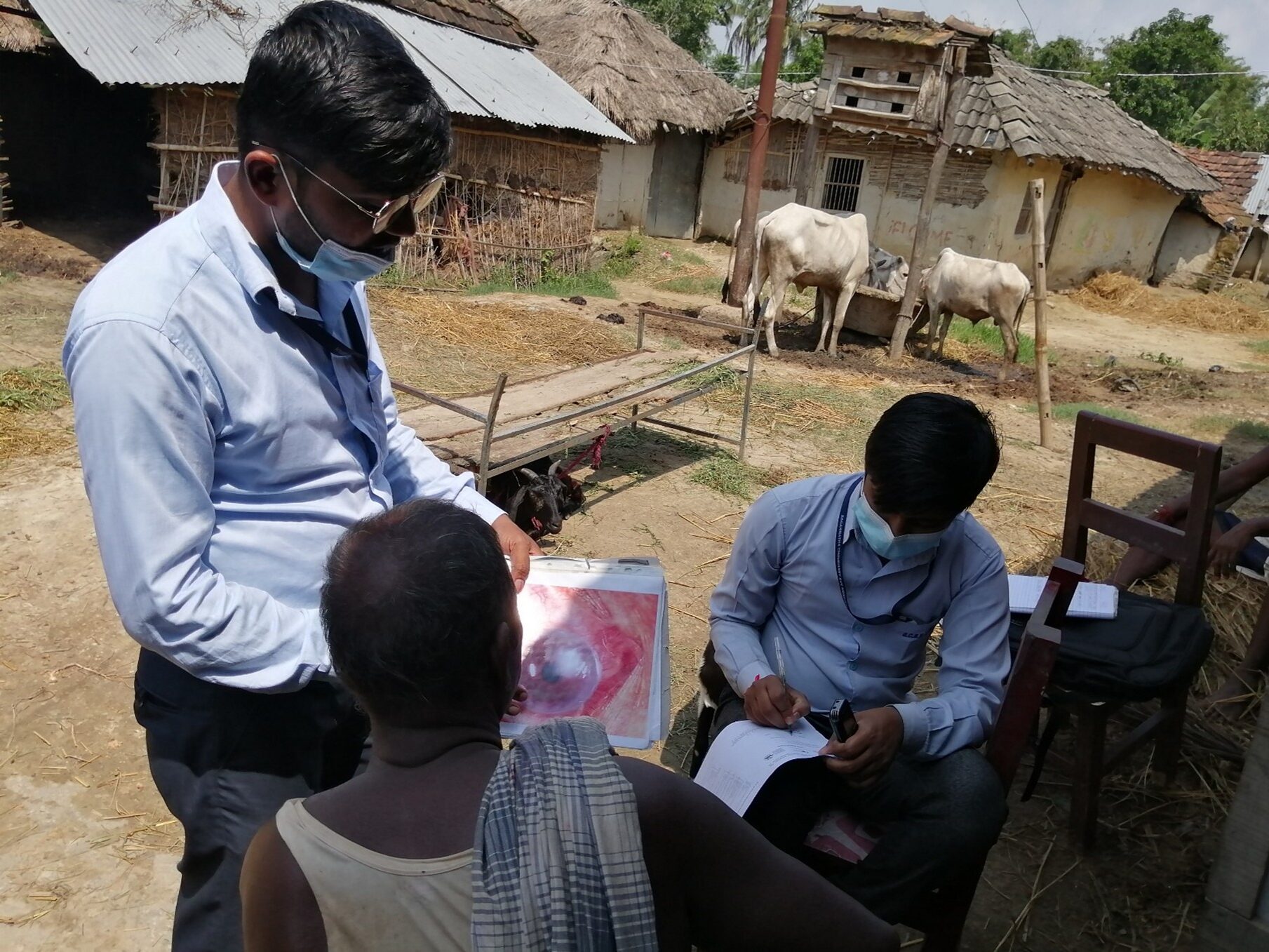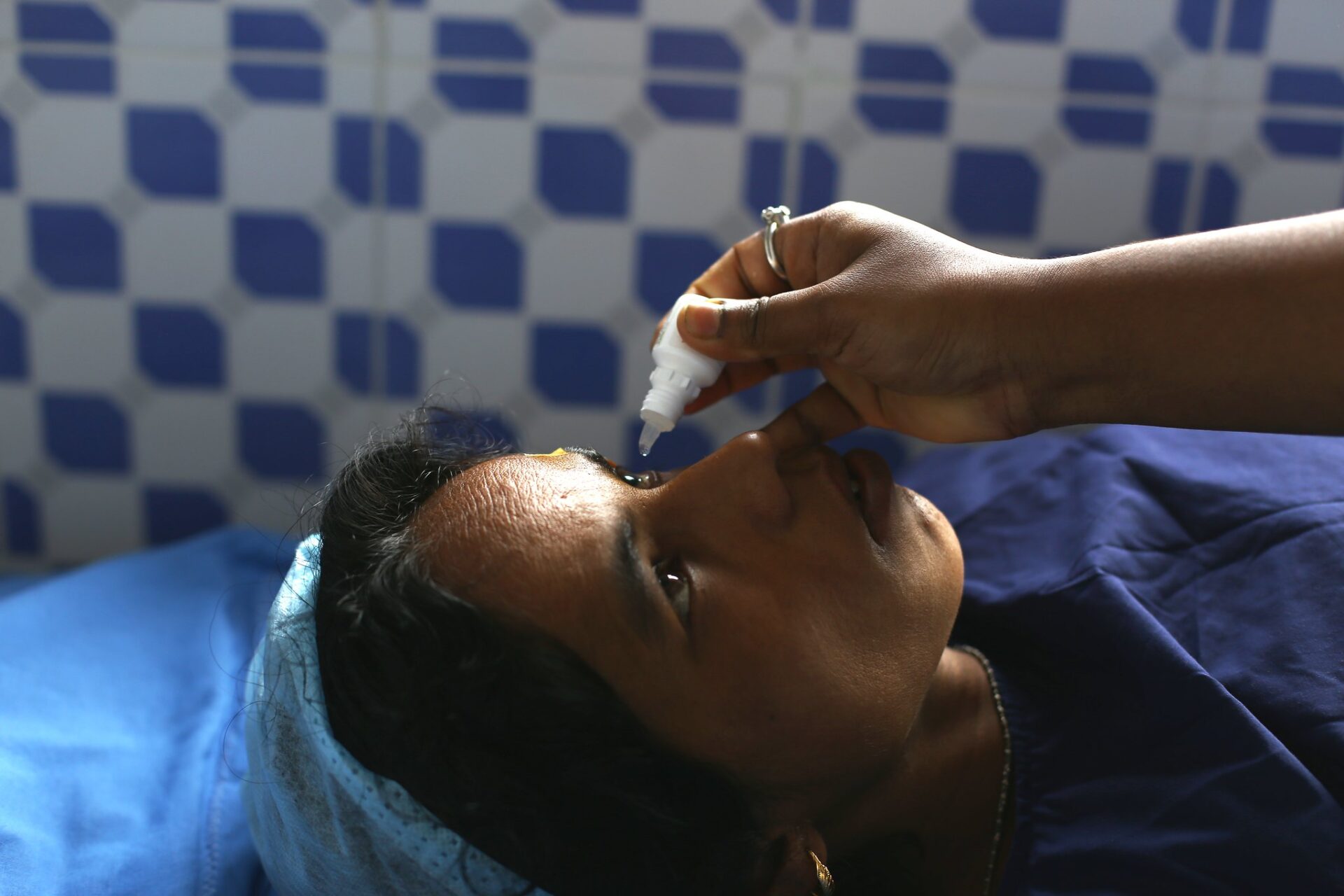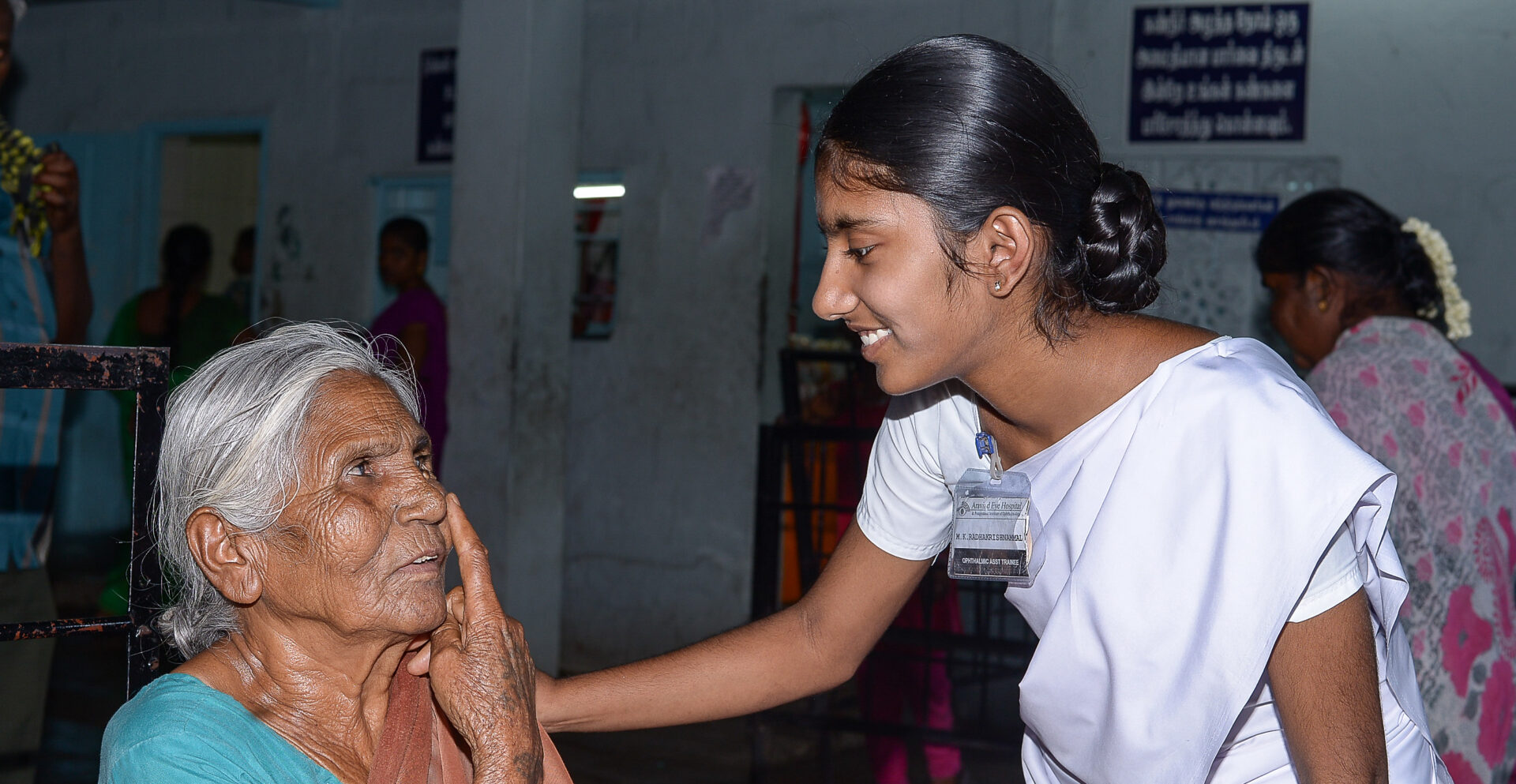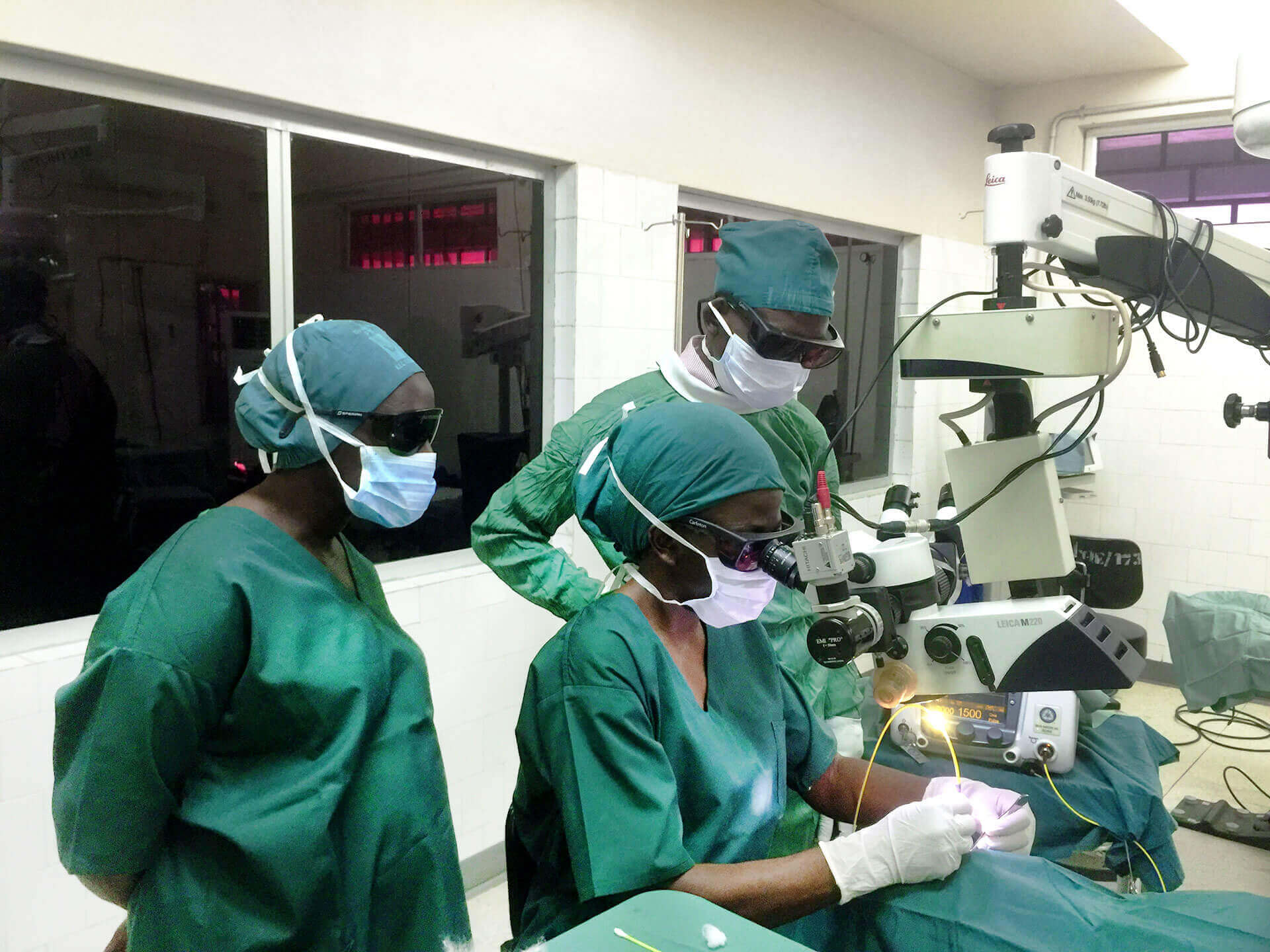Eye health is a key challenge in Nepal, and evidence-informed policy is critical to reducing visual impairment. A significant barrier to sustainable change is also the limited capacity for eye health research, with few trained professionals, scarce resources and little coordination.
Discover
Generating evidence
The Nepal Netra Jyoti Sangh (NNJS) is a national eye care institution which is responsible for the majority of eye care facilities in Nepal. While research is being conducted, it is primarily designed by foreign researchers, with local clinicians carrying out the work in their spare time.
With an online questionnaire across a network of 27 eye hospitals, NNJS investigated ongoing research, available resources and evidence requirements for the future. At present, there are only a few staff members active in research, distributed across NNJS tertiary eye hospitals. There are no processes to coordinate research activities, skills or resources.
“Small research projects using existing data sets will provide training and mentoring opportunities to strenghten research capacities at NNJS.”
Change
Leveraging capacities
The current project aims to establish a multidisciplinary research team in the NNJS core structure to scale local research activities by offering support to and coordination of the activities in the network of NNJS partner hospitals. The team will develop research skills in priority areas, help to increase scientifc output and translation into practice as well as develop fundraising capacities.
With support from the International Centre for Eye Health (ICEH) and in collaboration with eight hospitals from the NNJS network, an ophthalmologist, a statistician/epidemiologist, a data manager, a health economist and a research administrator will receive training and different research projects will be developed.

Transfer & Impact
Four systematic reviews are planned and will deliver evidence to inform eye health in Nepal. The collaborating hospitals have pledged funding to support the core research team, enhancing the project’s continuity. Addressing the most critical evidence needs for eye health in Nepal, and including a Ministry of Health representative on the project advisory board further ensure the longterm sustainability of the project’s achievements.
Why we funded this project
“The foundation’s Ophthalmology program in low- and middle-income countries aims to enhance institutional research capacity, strengthen local research, and research ownership which ultimately contributes to improved eye care.”
Foundation Board
Velux Stiftung
 Share
Share


